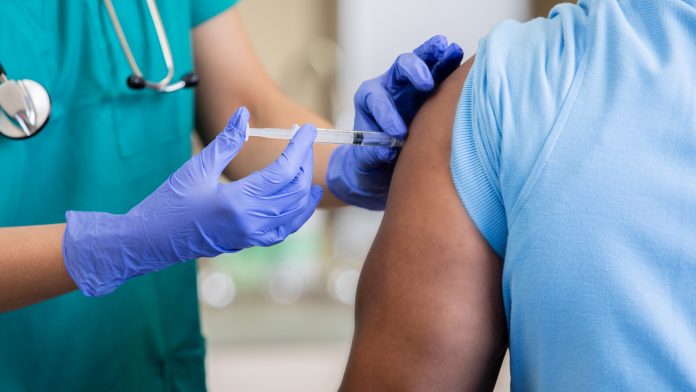
A modelling study has quantified that Covid vaccines have prevented 19.8 million out of a potential 31.4 million deaths in the first year.
In the study, published in The Lancet Infectious Diseases, researchers at the Medical Research Council Centre for Global Infectious Disease Analysis at Imperial College London designed a modelling study to quantify the impact of Covid vaccines.
The data illuminated the global influence of Covid vaccines on the death toll from the virus, finding that 19.8 million deaths were prevented in the first year of vaccine implementation (8 December 2020 to 8 December 2021).
The global impact of Covid vaccines
In the first year of the vaccination, 19.8 million out of a potential 31.4 million Covid deaths have been prevented worldwide, according to estimates based on excess deaths from 185 countries and territories. The modelling study highlighted that an additional 599,300 lives would have been saved if the World Health Organization’s (WHO) vaccination target was met; the target aimed for countries to vaccinate 40% of each population with two or more doses by the end of 2021.
Dr Oliver Watson, a lead author of the study from Imperial College London, said: “Our findings offer the most complete assessment to date of the remarkable global impact that vaccination has had on the COVID-19 pandemic. Of the almost 20 million deaths estimated to have been prevented in the first year after vaccines were introduced, almost 7.5 million deaths were prevented in countries covered by the COVID-19 Vaccine Access initiative (COVAX). This initiative was set up because it was clear early on that global vaccine equity would be the only way out of the pandemic. Our findings show that millions of lives have likely been saved by making vaccines available to people everywhere, regardless of their wealth. However, more could have been done. If the targets set out by the WHO had been achieved, we estimate that roughly one in five of the estimated lives lost due to COVID-19 in low-income countries could have been prevented.”
Creating the mathematical model to measure the death toll
The researchers employed an established Covid transmission model using country-level data that officially recorded Covid deaths. To account for the under-reporting of deaths in some countries, they carried out a separate analysis of excess deaths recorded above those expected during the period. In cases of official data being unavailable, the researchers used estimates. These analyses were compared with an alternative hypothetical scenario where no vaccines were available.
The model also accounted for varied Covid vaccination uptake rates and vaccine efficacy globally.
Based on officially recorded COVID-19 deaths, an estimated 18.1 million deaths would have occurred during the study if vaccinations were not distributed. The model estimated that Covid vaccines prevented 14.4 million deaths, a global reduction of 79%. These findings do not account for the under-reporting of COVID-19 deaths in lower-income countries.
Further analysis based on total excess death was conducted due to under-reporting, signifying that 79% of the avoided 19.8 million deaths were avoided by direct protection against severe symptoms. The other 21% of avoided deaths were estimated to have been prevented by indirect protection from reduced virus transmission in the population and reduced burden on healthcare systems.
Study limitations
The researchers noted several limitations of the study, including that the model was based on several necessary assumptions. For example, the precise proportions of the Covid vaccine types, how they were delivered, and the timing of when new virus variants arrived in countries. The team assumed the link between age and the proportion of Covid deaths occurring amongst infected individuals is the same for each country. The data should be considered in the context of uncertainty in calculating the Covid death toll due to the difference in country-level reporting of COVID-19 mortality. Furthermore, Covid data from China was excluded from the analysis due to its large population and strict lockdown measures.
Writing in a linked Comment, Professor Alison Galvani, who was not involved in the study, from Yale University School of Public Health, USA, said: “The saving of more than 19 million lives by the unprecedented rapidity of development and roll-out of COVID-19 vaccines is an extraordinary global health feat. Nonetheless, millions of additional lives could be saved by more equitable distribution of vaccines.”
She concluded: “High coverage in an individual country not only benefits that country but contributes to a worldwide reduction in transmission and emergence of novel variants. An enduring collective response is both pragmatic and ethically imperative.”










